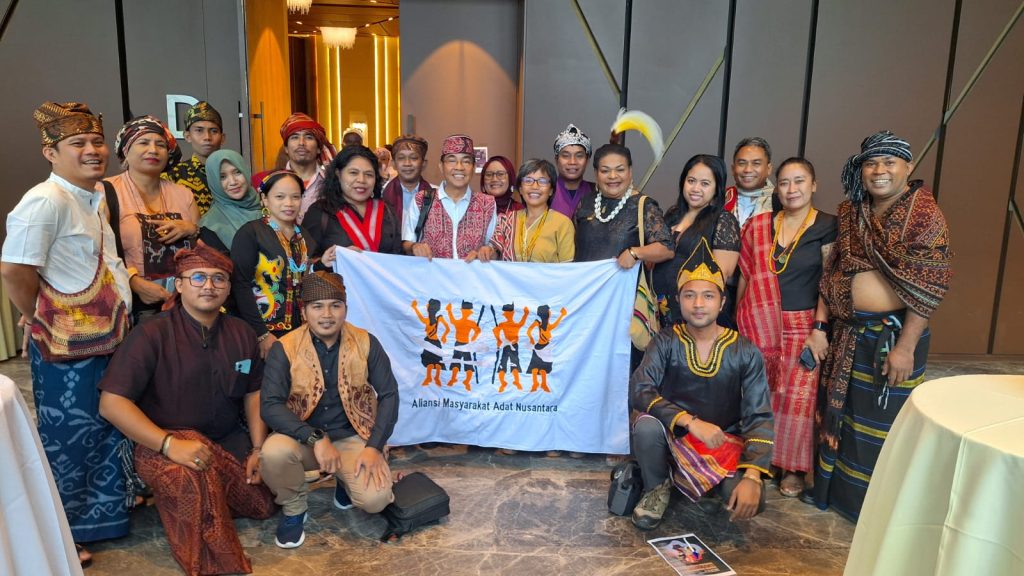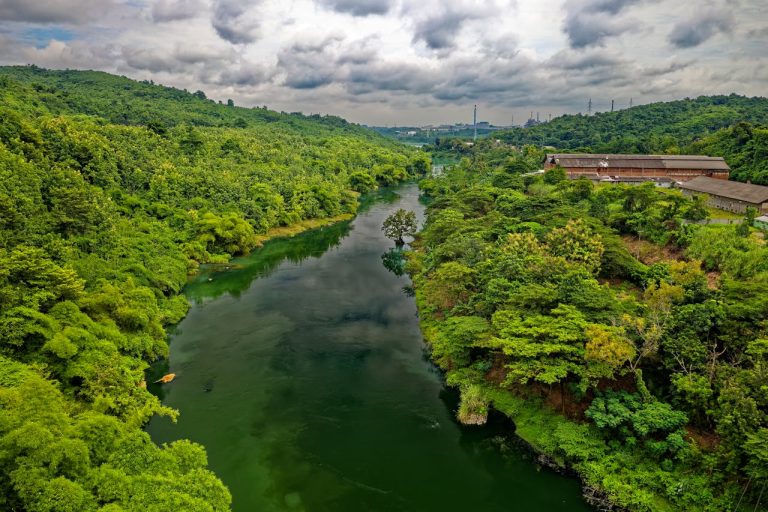
Jakarta – A total of 22 Indonesian indigenous delegates participated in the First Global Congress of Indigenous Peoples and Local Communities of the World’s Three Tropical Forest Basins (Three Basins Summit), held from May 26 to 30, 2025, in Brazzaville, Republic of the Congo. In this international forum, forest guardians from the Amazon, Congo, and Southeast Asia united to highlight the crucial role of indigenous peoples in safeguarding the global climate.
The presence of the Indonesian delegation, part of the Indigenous Peoples Alliance of the Archipelago (AMAN), affirmed Indonesia’s position as one of the regions with the largest tropical forests and indigenous communities that actively protect their territories from destruction.
“We come with a voice from the grassroots. The climate crisis cannot be solved without involving and recognising the rights of indigenous peoples,” said Rukka Sombolinggi, Secretary General of AMAN, who also attended the congress, in a written statement on Friday, 30 May.
Historical momentum for the global forest guardian coalition
The Congress was organised by the Global Alliance of Territorial Communities (GATC) in collaboration with the Rights and Resources Initiative (RRI). For the first time, indigenous peoples from three tropical forest basins —the Amazon, Congo, and Borneo-Mekong-Southeast Asia —came together in one global forum.
GATC Executive Secretary Juan Carlos Jintiach called the forum a milestone. “We are a living coalition. We come with ancestral knowledge and field experience, which has been keeping the earth breathing,” says Juan Carlos. “The upcoming COP30 in Brazil is just one point in this long struggle.”
Push for direct financing
Congress participants highlighted the importance of legal recognition of indigenous territories, as well as climate finance that reaches communities directly on the ground, rather than through complicated bureaucratic mechanisms. “Don’t burden indigenous peoples with layers of administration. It will weaken the guardians of the earth,” said Rukka, satirising global climate mechanisms that often marginalise the grassroots.
The coordinator of REPALEAC (a network of indigenous communities in Central Africa), Joseph Itongwa, added that indigenous peoples are not just complements, but leaders in managing the climate crisis. “We have been warning the world for a long time. Now it’s time for us to lead with our knowledge and experience,” she said.
The Congress opened with a special session on indigenous women’s leadership, which was attended by Rosalie Matondo, Minister of Forest Economy of the Republic of Congo. She emphasised the importance of synergies between environmental sustainability, economic development and social justice.
“I appreciate indigenous women who not only protect forests, but also communities and future generations,” Matondo said in her speech on 27 May.
As part of the pre-Congress agenda, the CLARIFI funding mechanism (under RRI) announced the allocation of USD 270,000 to support indigenous women’s initiatives in eight African countries.
“These funds will be used for land regeneration, local economies and biodiversity restoration,” explained Deborah Sanchez, a Moskitia woman from Honduras and Director of CLARIFI.
The five-day congress was a strategic space to strengthen the global coalition of indigenous peoples, draft a Congress Declaration, and formulate a Joint Action Plan to promote indigenous territory-based climate justice.
Sara Omi Casama, an Emberá lawyer from Panama and leader of the GATC women’s movement, called the congress a form of hope-based resistance.
“We defend the Earth with our knowledge. This congress strengthens the role of indigenous women in equitable territorial governance,” Sara emphasised.
Similarly, Levi Sucre Romero, a Bribri community member from Costa Rica, adds: “Our knowledge has a scientific basis. The world must stop simplifying the climate crisis. Everything is interconnected, and indigenous peoples are at the forefront,” said Levi, who is also Director of the Mesoamerican Alliance of Forest Peoples (AMPB).
A call from Indonesia: Grassroots are not objects, but leaders of change
Amidst funding imbalances and a lack of legal protections, Indonesian delegates called for placing indigenous peoples at the centre of climate change. They demanded that recognition of indigenous territories be accelerated and that climate finance be directed to communities.
“We are not objects of aid. We are proven leaders who protect forests and biodiversity. What we need is trust and recognition,” said one of the young delegates from Kalimantan, Agus Wirayuda.
The summit will close with a special ceremony bringing together heads of state, global donors and development partners to witness the joint commitment in the Three Basins Congress Declaration.
As COP30 approaches in Brazil, the collective voices of indigenous peoples from the world’s three largest tropical basins are expected to become the new foundation of the global climate justice architecture. (Hartatik)
Banner photo: Pexels.com/AMAN















